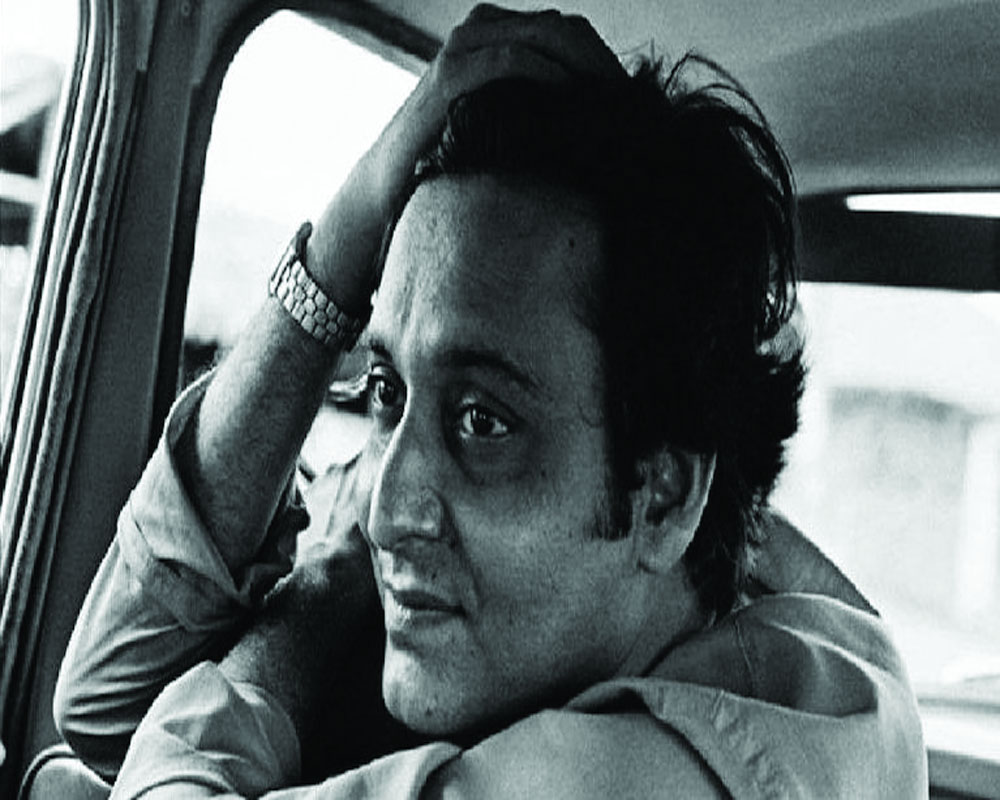Soumitro Chatterjee was much beyond the many talents he was defined by — an actor, theatreperson, writer, essayist, poet, elocutionist and thought leader. And will and should be remembered for the rare human being he was, hosting everyone in his modest study, surrounded with books, and willing to give you a patient hearing for a college play of no consequence as he would his next script. He respected every form of craft, be it rudimentary or elegant, for the sheer weight of the human imagination to conceive a world outside everyday reality, rather reinterpret reality from an individual perspective. Art, to him, was classless and he respected it for rising above the ordinary and creating a cultural idiom of our times. Such grace, empathy and oneness of what can only be called “a beautiful mind” will be his lasting legacy beyond him being just the last of the Bengali bhadralok.
He will forever be the mentor of the true artiste and remind us it is important to dream, no matter how little or big. And that life is always worth another try.
It is because of this passion for new ideas that he continued working in the studios in the thick of a pandemic despite his diseased condition and ultimately caught the bug called Covid-19, which claimed his life. It is this passion which made him Bengal’s colossal star, one who could straddle arthouse and commercial with effortless ease, one who was as comfortable adapting King Lear on stage as playing character actors in maudlin TV soaps. And if Bengal had a superstar called Uttam Kumar, an aura so large that years later the best of talent would still be called “aspirant,” Soumitro consciously occupied the other space, the less starry one, that of the everyday Bengali, who struggled without bothering to think about the outcome, who was guiltless about a lack of ambition and who wasn’t scared to admit to his frailties. Finally, the Everyman became the star. He challenged Uttam’s superstardom in director Tapan Sinha’s Jhinder Bondi (adapted from The Prisoner of Zenda), playing the villainous Mayurbahon, setting himself up as a counterpoint and stealing the thunder from the star who had more screen time playing a double role. And then there was no looking back. He won them all, Padma Bhushan, the Dadasaheb Phalke, National film award and the French Legion of Honour.
Of course, his epochal and cult appeal was gifted by the great maestro Satyajit Ray, who scooped him up for his rare ability to not only get under the skin of the character but egolessly become it with such self-effacing realism and minimalism that it wouldn’t look like acting at all. The Ray-Soumitra partnership is often compared to great director-actor relationships like that of Akira Kurosawa and Toshiro Mifune, Ingmar Bergman and Max von Sydow, Federico Fellini and Marcello Mastroianni and Martin Scorcese and Robert De Niro. Except there is one difference. Soumitro never got identified just by Ray’s luminescence, he played iconic characters in films by other directors as well, giving us a multiplicity of relatable characters than a signature one. The last was reserved though for Ray. From Apur Sansar, the coming of age story of a young man, who learns to love only to lose her during childbirth and decides to embrace their son for the journey ahead, to Pradosh Chandra Mitter or Feluda, the sharp-brained and agile Bengali private investigator who relied on logic and deduction than firepower to detect crimes, Soumitro had spanned not just in confidence but range. So much so that the Charminar-smoking Feluda was not exactly Marlborough man but definitely a cult hero like James Bond. And no matter how many Hindi versions or the Bengali remakes followed, Soumitro, like Sean Connery, will be the only Feluda.
One must particularly mention his role in Aakash Kusum, by Ray’s rival and another doyen, Mrinal Sen. Soumitro, as an aspirational young man trying to climb the corporate ladder of success, bluffing a rich girl and cutting corners in the process, would not be justifiable or likeable. But he made human want so yearningly real that the audience felt for him despite him crossing the line. The actor took a risk with a weak character as he did in Ajoy Kar’s Saat Paake Bandha, where he plays an ordinary professor who is insecure about his rich working wife and would rather have her subscribe to his ordinariness. With the wife played by the gorgeous Suchitra Sen, one could never justify the husband’s pettiness but Soumitro made the conflict between his limitation and desire so honest and painful, that you lived the demons with him and were forced to confront visceral life choices. Of course, there were Charulata and Ghaire Baire, where he stole the women’s heart, enlivened them but wasn’t man enough to warrant their freedom from their marital status. And it was in such roles that Soumitro was the perfect counterpoint for women characters and actors, each of whom, from Sharmila Tagore to Aparna Sen, appeared his onscreen equal. He was careful not to dominate them, yet shine with his own light, making his shortcomings believable and conquerable at the same time.
Yet, as he played elderly characters in his old age, they seemed to resolve all of life’s conflicts with the maturity of wisdom. Be it as the authoritative patriarch, or the ageing husband who realises he had not appreciated his wife much in Bela Seshe, the wasted loner craving for companionship in Podokhkhep and the professor dealing with dementia in Mayurakshi, Soumitro perhaps penned his own swan song through the dialogues, flowing from a life well lived and enriched. He has left us words, plenty of them, articulated or authored, to make sense of life, not just intellectualise it.


























